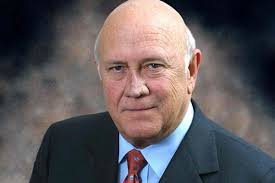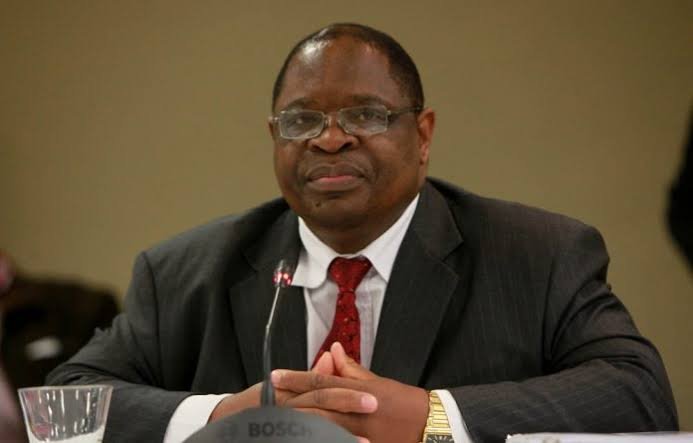This is a brief insight into South Africa’s diverse and vibrant history on March 18, a mosaic formed with strands of success, hardship, and perseverance. As we delve into the past of South Africa, we embark on a voyage through the ages, manoeuvring through the intricacies that have moulded the country we recognize today.

2007: Former South African coach, Bob Woolmer, is found unconscious in his hotel room during the Cricket World Cup in the West Indies
Bob Woolmer was a highly regarded cricket coach who had worked with leading Test nations, including South Africa and Pakistan. Unfortunately, he passed away under mysterious circumstances during the Cricket World Cup in the West Indies in March 2007. Woolmer was also a good cricketer and played for the English national team and World Series Cricket.
1994: Interim report into the allegations of a “Third Force” by the Goldstone Commission is published
Allegations were made against three high-ranking South African police officials, accusing them of masterminding a third force to make the country ungovernable. The allegations were made by a senior police officer named Q, and linked the officials to vigilantism, political murders, and the supply of weapons. The allegations were yet to be proven, and were denied by the accused officials, who refused to accept a “temporary leave” order. President F.W. de Klerk stated that there was not enough evidence, and an international task force would investigate the accusations.
1979: Government admits responsibility for Mdluli’s death
The South African government admitted responsibility for the death of the African National Congress (ANC) member, Joseph Mdluli (50), on 19 March 1976 and agreed to pay damages to his family. A claim for loss of support by Mdluli’s widow against the minister of justice and police was settled out of court. She received the amount of R28 616. Joseph Mdluli died of an injury to his neck while being detained in Durban security headquarters. His death occurred just a day after his arrest in connection with the 1976 Gwala treason trial. Four security policemen were charged with culpable homicide, namely Mr Frederick Van Zyl, Col. A.R.C. Taylor, Mr Mandlakayise Patrick Makhanya and Mr Zabulon Ngobese. During their trial they claimed that Mdluli had tried to escape and had fallen over a chair. A pathologist presented evidence disputing the police version. All four accused were acquitted on 25 October 1976, the fifth day of the trial. The presiding judge said there was insufficient evidence to connect them directly to the death. He called for further investigation.
1974: Connie Mulder announces banning of World Council of Churches (WCC) officials from South Africa
The Minister of the Interior, Connie Mulder, announces that senior officials of the World Council of Churches (WCC) have been banned from South Africa. Entry will be refused to any member of the Council’s Executive or Central Committee. During the 1960s the WCC created a programme to fight racism. They invited member churches to contribute to a fund to provide financial support for guerrilla organizations throughout the world. It did not make direct grants to guerrilla organisations in Southern Africa out of its normal financial income. After 1963, exiled African National Congress (ANC) and Pan Africanist Congress (PAC) leaders, together with other political exiles and refugees, began to exert pressure on the WCC, directing their arguments to achieve moral isolation of South Africa in order to facilitate the overthrow of White rule. Despite terrorism being termed ‘the scourge of modern times’, and roundly condemned in the rest of the world, there was a tendency in the WCC to excuse guerrillas in Southern Africa and to give them moral support. It accordingly contributed to guerrilla organisations in Southern Africa ‘for non-military purposes’, and the climate of suspicion between Church and State thickened.
1965: Nuclear Reactor At Pelindaba Goes Critical
On this date in history, South Africa initiated its nuclear program with the criticality of the Safari-1 nuclear reactor. The 20MW reactor was supplied by the US firm Allis Chalmers Corporation, and HEU was used as fuel. The project began after World War II, and it was initially not intended for military purposes. South Africa is the only country in the world to have voluntarily abandoned its nuclear weapons.
1950: The University of the Orange Free State is founded in Bloemfontein
The University of the Free State was established in 1950. It began as a small college called Grey College School in 1904. Today, it has over 30,000 students in seven faculties and a satellite campus in QwaQwa. In 2008, the university faced controversy when a video made by four white students surfaced, causing racial tension and leading to the closure of the Reitz hostel. The university is still working to achieve racial harmony.
1949: The North Atlantic Treaty Organisation (NATO) is founded
NATO was formed after WWII to provide security against the Soviet Union and promote European political integration. It currently has 110,000 military personnel engaged in missions worldwide, including in North and East Africa.
1936: F.W. de Klerk is born in Johannesburg
Frederik Willem de Klerk was a South African politician and lawyer. He held several ministerial positions in the Cabinet of President P.W. Botha before becoming the leader of the National Party in 1989. In 1994, he was appointed second vice president in Nelson Mandela’s cabinet. He retired from politics in 1997.
1922: The Rand Revolt Ends
In 1922, the Rand Revolt, a strike by White mineworkers, ended on March 18. The rebellion was caused by Black miners taking jobs that they believed were reserved for White workers, resulting in over 200 deaths, more than a thousand injuries, job losses, and a significant drop in coal and gold production.


